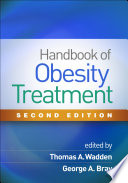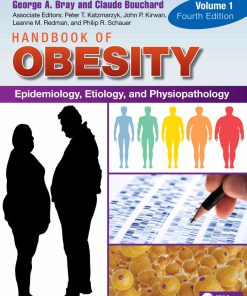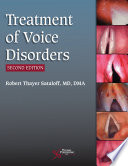Handbook of Obesity Treatment Second Edition by Thomas A. Wadden 9781462535576 1462535577
$50.00 Original price was: $50.00.$25.00Current price is: $25.00.
Handbook of Obesity Treatment Second Edition Thomas A. Wadden – Ebook Instant Download/Delivery ISBN(s): 9781462542901, 9781462535583, 9781462535569, 1462542905, 1462535585, 1462535569, 9781462535576, 1462535577

Product details:
- ISBN 10: 1462535577
- ISBN 13: 9781462535576
- Author: Thomas A. Wadden
The leading clinical reference work in the field–now significantly revised with 85% new material–this handbook gives practitioners and students a comprehensive understanding of the causes, consequences, and management of adult and childhood obesity. In concise, extensively referenced chapters from preeminent authorities, the Handbook presents foundational knowledge and reviews evidence-based psychosocial and lifestyle interventions as well as pharmacological and surgical treatments. It provides guidelines for conducting psychosocial and medical assessments and for developing individualized treatment plans. The effects of obesity–and of weight loss–on physical and psychological well-being are reviewed, as are strategies for helping patients maintain their weight loss. New to This Edition *Many new authors and topics; extensively revised and expanded with over 15 years of research and clinical advances, including breakthroughs in understanding the biological regulation of appetite and body weight. *Section on contributors to obesity, with new chapters on food choices, physical activity, sleep, and psychosocial and environmental factors. *Chapters on novel treatments for adults–acceptance and commitment therapy, motivational interviewing, digitally based interventions, behavioral economics, community-based programs, and nonsurgical devices. *Chapters on novel treatments for children and adolescents–school-based preventive interventions, family-based behavioral weight loss treatment, and bariatric surgery. *Chapters on the gut microbiome, the emerging field of obesity medicine, reimbursement for weight loss therapies, and managing co-occurring eating disorders and obesity.
Table contents:
Part I. Prevalence, Consequences, and Etiology of Obesity
1. Epidemiology and Health and Economic Consequences of Obesity
2. Gut‑to‑Brain Mechanisms of Body Weight Regulation
3. Energy Expenditure and Obesity
4. Genetics of Obesity
5. Human Energy Homeostasis and the Gut Microbiome
Part II. Behavioral, Environmental, and Psychosocial Contributors to Obesity
6. The Role of Portion Size, Energy Density, and Variety in Obesity and Weight Management
7. Physical Activity and the Development of Obesity
8. Sleep and Obesity
9. Social, Economic, and Physical Environmental Contributors to Obesity among Adults
10. Psychosocial Contributors to and Consequences of Obesity
11. Obesity, Eating Disorders, and Addiction
Part III. Health Consequences of Weight Reduction
12. The Impact of Intentional Weight Loss on Major Morbidity and Mortality
13. Weight Loss and Changes in Psychosocial Status and Cognitive Function
14. Effects of Lifestyle Interventions on Health‑Related Quality of Life and Physical Functioning
Part IV. Assessment of Patients with Obesity
15. Medical Evaluation of Patients with Obesity
16. Behavioral Assessment of Patients with Obesity
Part V. Treatment of Obesity in Adults
17. An Overview of the Treatment of Obesity in Adults
18. Dietary Treatment of Overweight and Obesity
19. Physical Activity and Weight Management
20. Behavioral Treatment of Obesity
21. The Role of Medications in Weight Management
22. Surgical Treatment of Obesity
23. Maintenance of Weight Lost in Behavioral Treatment of Obesity
Part VI. Additional Approaches to and Resources for the Treatment of Obesity
24. The Emerging Field of Obesity Medicine
25. Coverage of Obesity Treatment: Costs and Benefits
26. Obesity Treatment Perspectives in U.S. Racial/Ethnic Minority Populations
27. Treatment of Obesity in Primary Care
28. Remotely Delivered Interventions for Obesity
29. Commercial Weight Loss Programs
30. Treatment of Obesity in Community Settings
31. Alternative Behavioral Weight Loss Approaches: Acceptance and Commitment Therapy and Motivationa
32. Behavioral Economics and Weight Management
33. Nonsurgical Interventional Modalities for the Treatment of Obesity
34. Treatment of Eating Disorders in Persons with Obesity
35. Obesity and Body Image Dissatisfaction
36. Obesity, Weight Management, and Self‑Esteem
Part VII. Childhood Obesity and Obesity Prevention
37. The Development of Childhood Obesity
38. Prevention of Obesity in Youth: Findings from Controlled Trials
39. Behavioral Treatment of Obesity in Youth
40. Pharmacological Treatment of Pediatric Obesity
41. Bariatric Surgery in Adolescents with Severe Obesity
42. Using Public Policy to Address Obesity: Past, Present, and Future
People also search:
handbook of obesity
guidelines for treatment of obesity
obesity handouts for patients
guidelines for obesity treatment
guidelines for obesity management
You may also like…
Medicine - Popular scientific literature
Handbook of Obesity Volume 1 Epidemiology Etiology and Physiopathology 4th Edition George A Bray
History & Research
Handbook of Personality Disorders Second Edition Theory Research and Treatment W. John Livesley
Relationships & Lifestyle - Addiction & Recovery
Routledge Handbook of Critical Obesity Studies 1st Edition by Michael Gard 9781000511390 1000511391
Medicine - Internal Medicine
Treatment of Voice Disorders Second Edition Robert Thayer Sataloff
Psychology - Clinical Psychology
Medicine - Health-Related Professions
Obesity Prevention and Treatment: A Practical Guide 1st Edition James M. Rippe











